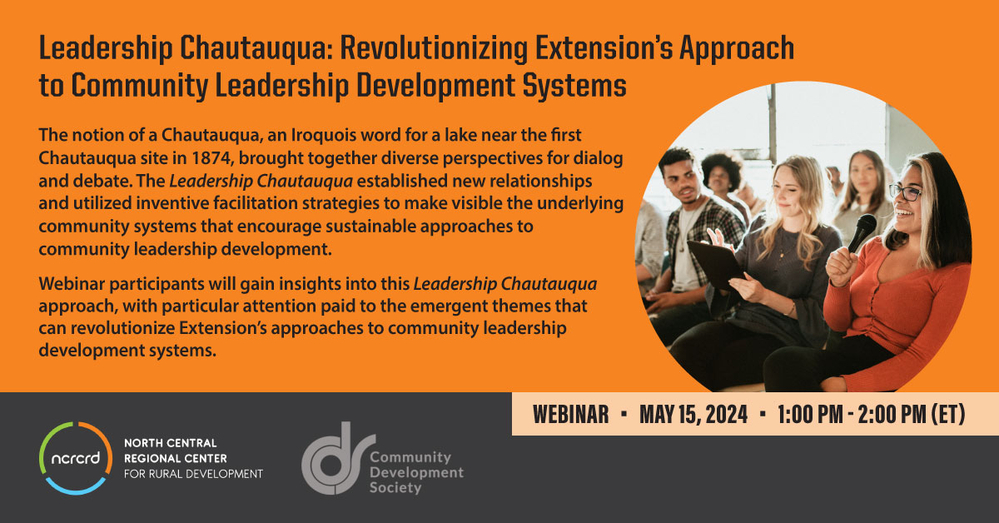Transformative community change demands new ways of thinking about and practicing leadership development that considers both global realities and local norms. To address this challenge, a collaborative of community leadership scholars and practitioners developed a Leadership Chautauqua, engaging peer networks of community leaders to develop a new approach to leadership development that goes beyond individual leader training to engage communities in creating leadership ecosystems that build more robust leadership capacity and culture.
The notion of a Chautauqua, an Iroquois word for a lake near the first Chautauqua site in 1874, brought together diverse perspectives for dialog and debate. The Leadership Chautauqua established new relationships and utilized inventive facilitation strategies to make visible the underlying community systems that encourage sustainable approaches to community leadership development. Webinar participants will gain insights into this Leadership Chautauqua approach, with particular attention paid to the emergent themes that can revolutionize Extension’s approaches to community leadership development systems.
Presenters:
- Lindsay Hastings, Ph.D., Clifton Professor in Mentoring Research and Research Director, NHRI Leadership Mentoring, University of Nebraska – Lincoln
Lindsay Hastings, Ph.D. is a published scholar in leadership studies, serves on the Journal of Leadership Education editorial advisory board, and is an Extension specialist in community leadership for Rural Prosperity Nebraska. - Mary Emery, Ph.D., Director, Rural Prosperity Nebraska, University of Nebraska – Lincoln
Mary Emery, Ph.D. is a published scholar in applied Sociology and community development. Emery is the past chair of the Community Development Society and member of the journal editorial board. Additionally, Emery is co-author of Guide to Ripple Effect Mapping and Field Guide to Community Coaching and serves as an evaluation specialist on NSF, HRSA, and USDA grants. - Jordan Rasmussen, M.A., Rural Prosperity Nebraska Extension Educator, University of Nebraska – Lincoln
Jordan Rasmussen, M.A. is a rural community development practitioner and is the Co-Program Leader for Rural Prosperity Nebraska.
The May webinar is presented by NCRCRD and the Community Development Society (CDS).
Registration (free): https://bit.ly/3PKVXav
After registering you will receive an email with the link to the webinar. Registration open until the start of the webinar.


Comments (0)